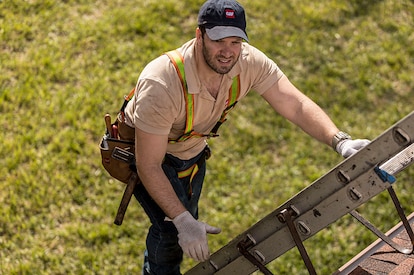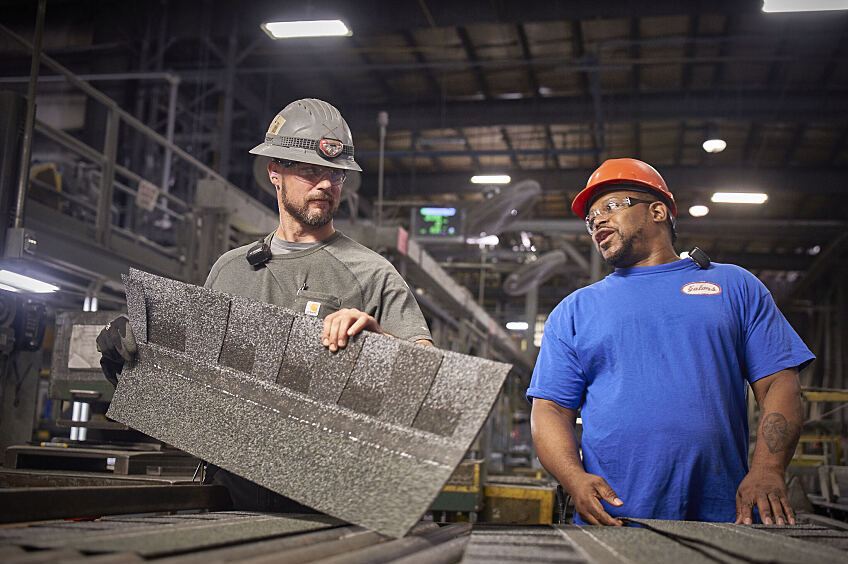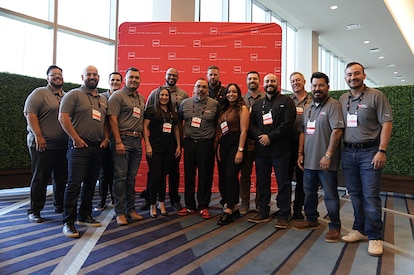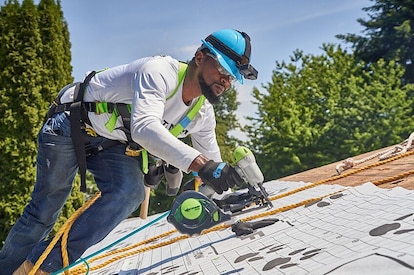
Residential Roofing
What Are Ladder Hooks?
As a roofing contractor, keeping yourself and your employees safe is crucial, which involves using the right equipment. Ladder hooks, sometimes referred to as roof hooks, are used to secure a ladder over the top of a roof's ridgeline. They're an essential piece of safety equipment for steep-slope roofing work.How Do Ladder Hooks Work?These hooks resemble a shepherd's crook that hooks over the roof's ridgeline and stays put with an attached T-bar to secure it to the other side of the ridge. The bottom of the crook has a smaller hook that holds the ladder and prevents it from slipping or sliding down the roof. Ladder hooks are typically made from heavy-duty steel and can support several hundred pounds. They essentially turn the ladder into a more stable set of stairs, creating a safer and more efficient work environment for roofing professionals, especially during steep-slope work.Most hooks also feature a rubber wheel that can help you get the ladder safely up onto the roof. Once you secure the hook on the rungs of the ladder, roll the ladder up the slope (on its back). When it passes the roof ridgeline, flip the ladder over to secure the hooks over the top of the ridgeline.Why Should You Use a Ladder Hook?According to the American Ladder Institute, 500,000 people are treated for injuries from using ladders every year, with 300 of those injuries leading to fatalities. With newer home styles featuring more dramatic rooflines with steep pitches, you may find yourself facing 10:12, 12:12, and higher pitches more regularly. Ladder hooks can help make working on these roofs safer.They can provide stability and security on lower-pitched roofs, too. You may also want to use them for performing repairs around skylights or chimneys, especially if the roof surface is icy or slippery. And they can provide secure footing in cases of suspected damage, such as a weak or rotting deck.These safety devices are designed to prevent the ladder from damaging shingles, so there's no downside to using them.Can a Ladder Hook Replace Other Safety Measures?Using a ladder hook can make you feel more secure and stable on a steep pitch. But you shouldn't forego other safety measures, such as using a personal fall arrest system consisting of lifelines, lanyards, and deceleration devices attached to an anchor point and connected to the body harness. Remember, the anchorage should be able to support 5,000 pounds per employee. Ladder hooks are designed to secure the ladder to the rooftop—not to secure a person or prevent them from falling.How Do You Choose the Right Ladder Hook?To find the right ladder hook, contact your ladder's manufacturer to see if it has a hook designed to work with its ladders. If it doesn't offer any, review the ladder hook manufacturer's guidelines to see what types of ladders are best suited for its hook. If your ladders are due for replacement, you can also look for manufacturers that offer kits with both the ladder and the hook.For more learning opportunities and resources to help you succeed in your roofing business, visit the GAF Center for the Advancement of Roofing Excellence (CARE).
By Authors Karen L Edwards
March 18, 2024



